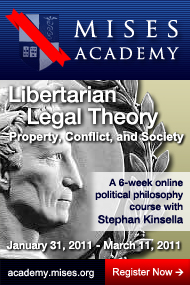Vint Cerf’s Confusing Views on Internet Access and Human Rights
Libertarian Theory, Science, TechnologyVint Cerf, the “father of the Internet,” has given very confusing reasons for his view that Internet Access Is Not a Human Right. First, he says that Internet access, unlike freedom of speech and access to information, is not a human right. Cerf’s stance on the debate boiled down to this: ‘Technology is an enabler of rights, not a right itself.'”
Hunh? What does “access to information” even mean? It seems to be some unlibertarian positive right. And if such things can be “rights,” why can’t access to the Internet? Because of the contextless, ad hoc assertion that “Technology is an enabler of rights, not a right itself.”
He goes on to try to elaborate on his shaky view of rights:
In order for something to be considered a human right, it must be among the things a person needs to lead a healthy and meaningful life, such as freedom from torture or freedom of thought, Cerf argued.
Well we need education and food to lead a healthy life, so if you are going by this standard you open the door to any number of welfarist, socialist positive rights, such as social security, employment, equal pay for equal work, vacation time, food, housing, medical care and education, as I discuss in Intellectual Property as Socialistic “Human Rights”.
The better approach is to recognize that there are no positive rights at all, since a positive right implies a positive duty on behalf of others to provide you with the thing you have a “right” to, such as food, education, and so on. The idea of positive rights implies that others are your partial slaves. If the positive rights are universal, that means we are all each others’ slaves. (The one exception is to this prohibition on positive obligations or duties is those that are voluntarily assumed by the obligor, such as the parental obligation to children, the obligation of a criminal or tortfeasor to help or make amends to his victims, and so on. See How We Come to Own Ourselves.)
I argue in Internet Access as a Human Right for a different approach to this issue. First, we need to be skeptical of the very term “human rights.” Common conceptions of “human rights” tend to hold that human rights include socialistic, positive welfare rights. This is why it is better for libertarians to refer to “natural” rights, or just plain rights or “libertarian rights.” Human rights can be seen as including three different things:
- natural rights or related negative rights (right to free speech, etc.);
- positive, socialistic welfare rights;
- procedural or prophylactic/civil rights (i.e. rights that are not natural but that are good fictional standins for limitations on state power).
The first is of course to be welcomed, though it’s usually just an atrophied subset of the full panoply of real libertarian rights. For example human rights contemplate the legitimacy of governments, and taxation (conception #2 above requires it), and imprisonment and other punishments for violating state decrees, while libertarians recognize that these things violate rights. (The right to free speech is not really a fundamental natural right, actually, but only a consequence of more fundamental basic libertarian rights to have one’s body be free of aggression. See Rothbard, “Human Rights” As Property Rights. But at least it indicates an aspect of, or consequence of, a real libertarian right. Not that this somewhat unclear view of rights doesn’t lead to trouble–if you view “free speech” as an independent right, unanchored from bodily and property rights, then they can be used to trump real property rights, as in the cases where state courts have “deemed” shopping malls to be “public spaces” and “therefore” they must allow people to engage in protests etc., in the name of “free speech.”)
The second set of rights are completely unlibertarian. There are not positive welfare rights. …
Vint Cerf’s Confusing Views on Internet Access and Human RightsRead More »
Vint Cerf’s Confusing Views on Internet Access and Human Rights Read Post »




